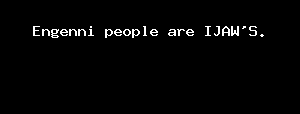Kuamo
Others
Wants to meet Engineers : Very Skillful In There Line Of Duty....
Articles
145
Followers
21
profile/9093IMG-20200801-WA0028.jpg
Kuamo

The Sad Reality About LIVE!
~2.5 mins read
A man took a loan, bought a house, it was about to be seized, just because he could not pay the loan as agreed.
He posted his situation on Facebook looking for help, but all he could get was zero comments.
So he sent 250 messages to his contact list requesting a loan of #200,000.
Unfortunately only 10 people responded. 6 out of 10 said they could not help him. And only 1 out of 4 who promised to help and gave him some money.
The other 3 gave excuse and never took his calls.
In the end, he was ejected.
He did not have a place to sleep. He walked in the dark looking for options and unfortunately, A thief stole his empty purse with his ID.
The thief was badly hit by a car in high speed as he fled and died without his body being identified.
Only the bag containing the identity card served as a marker.
The next day the news spread quickly around that he (the Man) had died.
2,500 people posted on his Facebook wall how they knew him and how kind he was.
A committee was formed by his"faithful" friends who raised #750,000 to feed people at his funeral.
His work colleagues organized themselves and brought #1.5m for the coffin, the tents and the chairs.
He had to be buried in a coffin worth #350,000 but as they hastily bought it there was a man who sold it to them for #200,000 saying it was his contribution.
The family met again, it was a rare opportunity for the family to meet again.
Then there was a sitting. For the funeral, the family contributed #400,000.
Everyone wanted to volunteer to show that they were participating.
They printed t-shirts and polos for more than #85,000.
Now imagine the scene when he decided to show himself up on the day of his burial.
While everyone run helter skelter thinking they'd seen a ghost, the man felt embittered, seeing how both family and friends that abandoned him at his darkest hours, extravagantly spent all they had, on mere carcass.
So is life today, A sad reality but part of our daily lives.
It will surprise you to learn that bulk of all those who talk about how much they love the deceased on burial days, are those who never showed him care and love, when he was alive.
Yet, they'll talk from Lagos to abuja, how much they loved him.
When a family member is in dire financial need, nobody will help...but the moment he's dead, money will come from all hidings.
You who read this story, change your mentality.
Help your brother/sister when he/she needs you.
Do not wait for their death to show them your love. It will not help them.
You can help in prayer.
You can help in encouraging.
You can help financially.
Those that need your help, pick their calls. You may need their help one day.
Value your friends and family while they are Alive.
profile/9093IMG-20200801-WA0028.jpg
Kuamo

Engenni People Are IJAW'S.
~6.4 mins read
Advertisement

Link socials
Matches
Loading...
